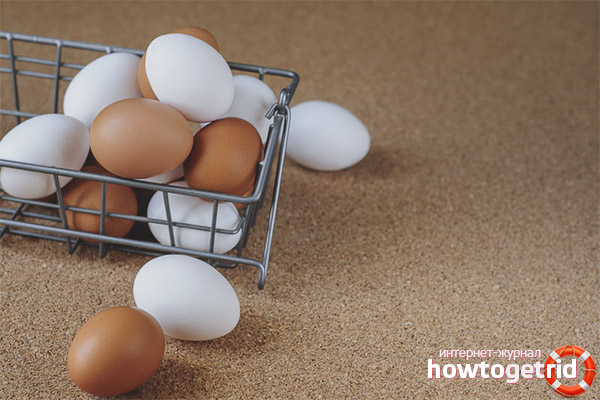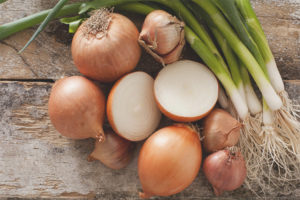The content of the article
Each of us tries to monitor our body, at least in some aspects. We adhere to a healthy lifestyle, move more, choose natural and healthy products for our loved ones. But sometimes we literally get stuck in a supermarket in front of the egg counter. Here you see white eggs on one side and brown eggs on the other. As a rule, if they are the same size, then brown ones are a little more expensive. What to do? Which eggs to choose? Which shell stores the most beneficial substances? What is the difference between white and brown eggs, let's try to figure it out.
Features of brown and white eggs
What is the difference between brown and white eggs - the answer to this question is simple and lies on the surface. It’s all about the chicken breed - the light-plumaged chicken will carry white eggs, and the red and black chicken will give a brown egg. That’s all the difference. However, the eggs have long been overgrown with all sorts of myths that we will try to dispel.
- Some people are sure that brown eggs are more useful, they have more valuable substances for the human body. This is a big mistake, the composition of brown and white eggs is exactly the same.
- It is also believed that brown shells are harder than white ones. This statement can also be considered a myth, since the hardness of the shell does not depend on the breed of chicken, it can vary only on the age of the bird. That is, eggs with a hard shell often carry young hens, with age, the amount of calcium in the body of a laying hen decreases, the shell of an old chicken will be much more loose.
- Sometimes brown eggs are more expensive, why? Unfortunately, there is no definite answer to this question. On the one hand, this is nothing more than a marketing move that convinces the buyer of the naturalness of brown eggs. On the other hand, farmers argue that brown chickens are larger, which means they require more feed, the cost of a brown egg is more expensive. And this is despite the fact that the size of the white and brown eggs are no different.
It happens that you think that a brown or, conversely, white egg has a more saturated yolk color. In fact, it depends on chicken feed and laying conditions. Shell color is far from the main indicator by which to choose eggs.
How to choose fresh and good eggs?
In order for a purchase in the market and in the store to be successful, the choice of eggs should be approached very carefully.
- If you have the opportunity to buy real homemade eggs - use it. You should not buy eggs in the market - you cannot be sure of their origin, perhaps you are offered ordinary eggs from a poultry farm at the price of home ones. But if you have friends who have chickens, take these eggs without fail, they contain much more useful substances.
- Be sure to look at the date of packing the eggs in the store. The letter D means that the egg is dietary, it takes only a few days. Then they put the marking C on it - which means dining room. It can be stored for 25 days. The letter B - means the highest category of eggs, these are large specimens, more than 75 grams. Further, by weight, an egg can be designated by the first, second or third category.
- There should be no cracks or damage on the shell.
- On the surface of the shell there should be no obvious remnants of bird droppings, these are natural food standards. However, glossy and crystal clear shell should not be. Such a surface may indicate that the egg was washed, which means that the natural protective layer was washed off, without which the egg will deteriorate after 10-12 days.
- Do not buy eggs that are too large - they are usually watery, they are laid by old laying hens. But smaller, more healthy and vitamin-rich eggs come from young hens.
- Checking an unmarked egg for freshness is rather difficult. To do this, you can shake it near the ear. If you hear gurgling or other characteristic sounds - the egg is not fresh, you should not buy such a product. A good egg will not make any sounds.
But the color of the eggs you have chosen is only the aesthetic side of the issue. If you are more accustomed to browns, buy them; if you prefer whites, make a choice in their favor. If whites are cheaper in the store, be sure to buy them, because there are no other differences in eggs (except for the color of the shell)!
Eggs from ancient times were considered not only a food product, but also endowed with a much greater semantic load. From ancient times in Russia it was customary to paint eggs - this is a symbol of Easter. Tales, songs, girlish fortune-telling, mystical rituals and methods of treatment are associated with eggs. Choose fresh eggs and ignore their color!
Video: What is the difference between white and brown chicken eggs?











Submit